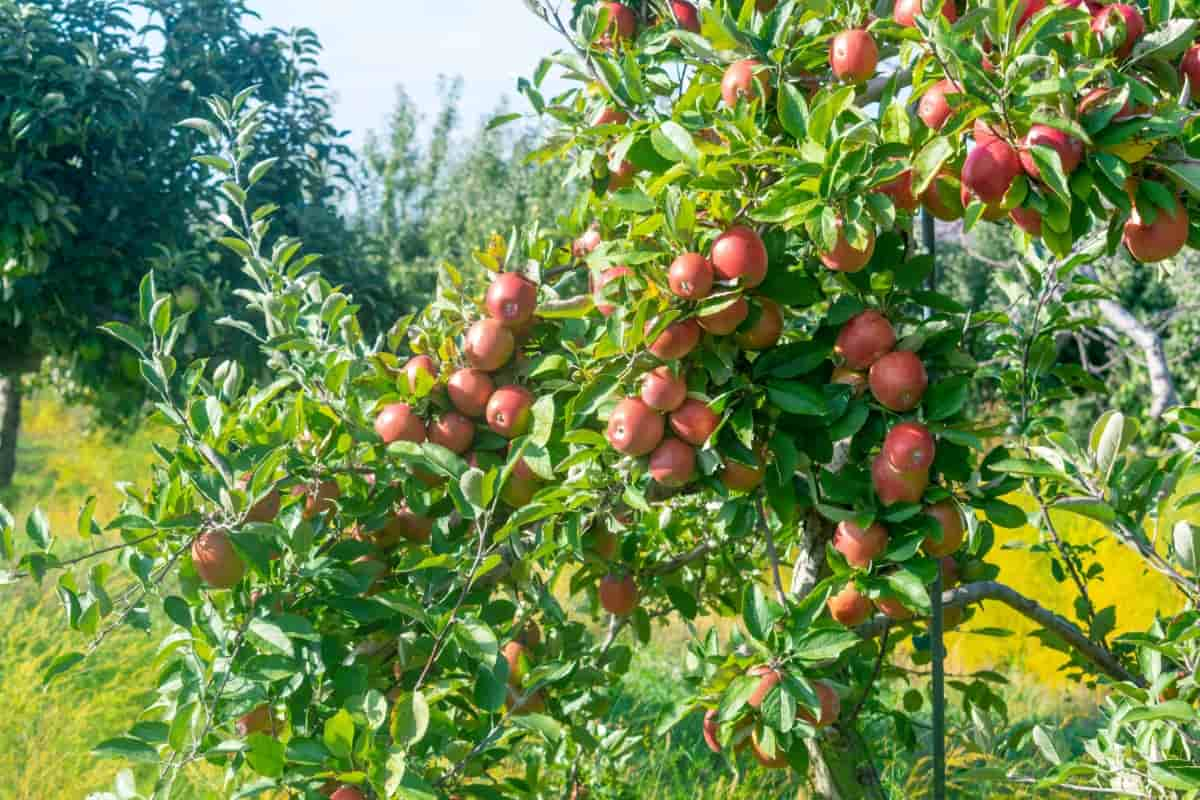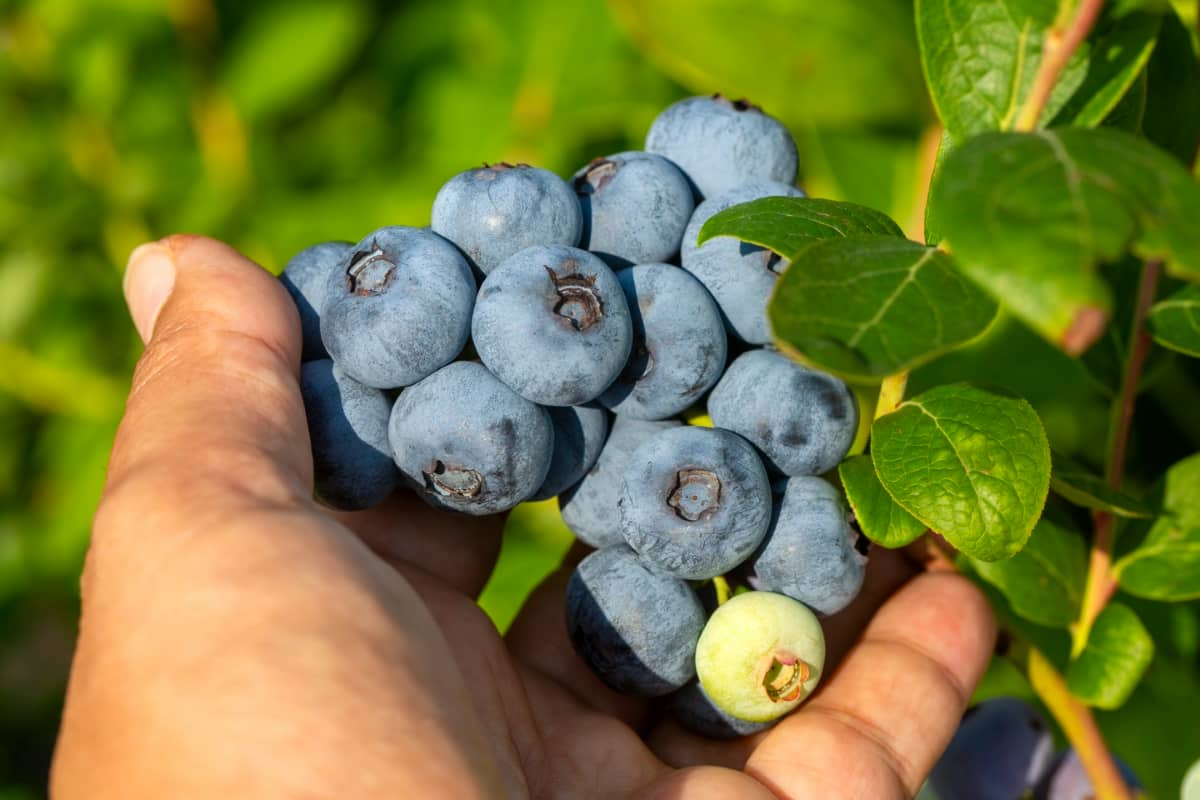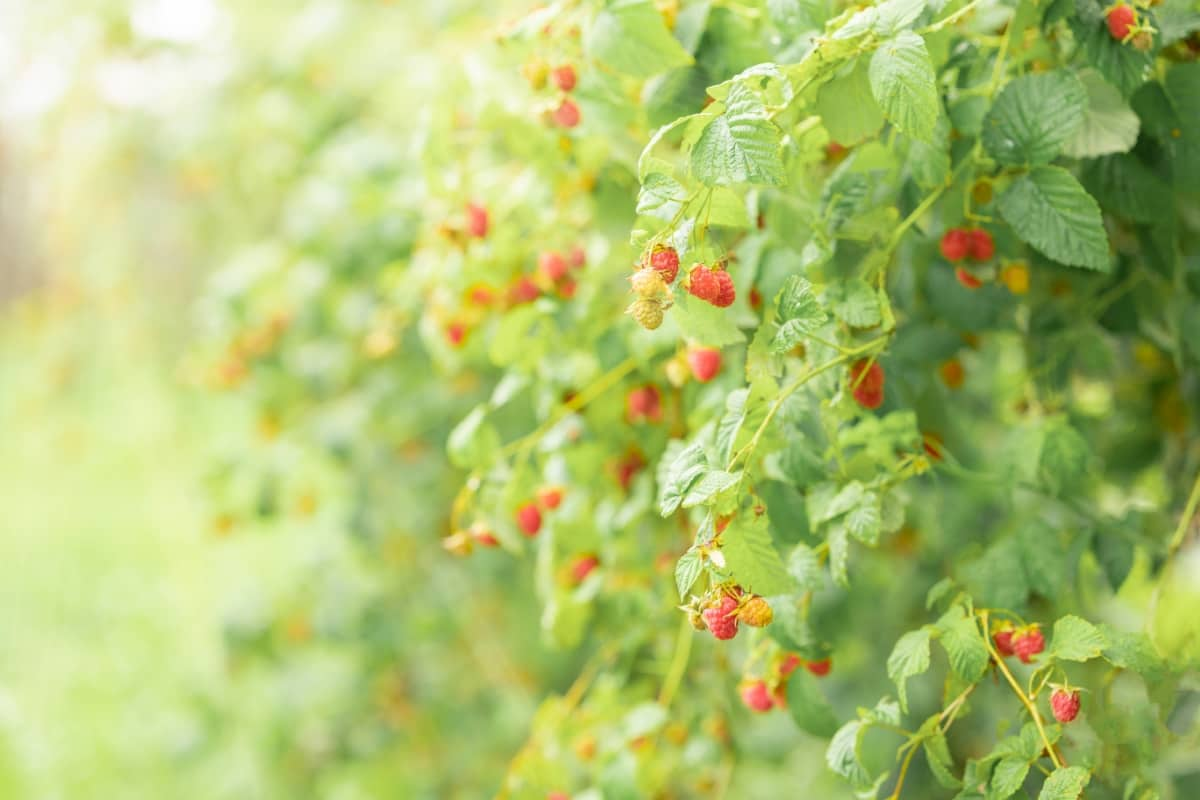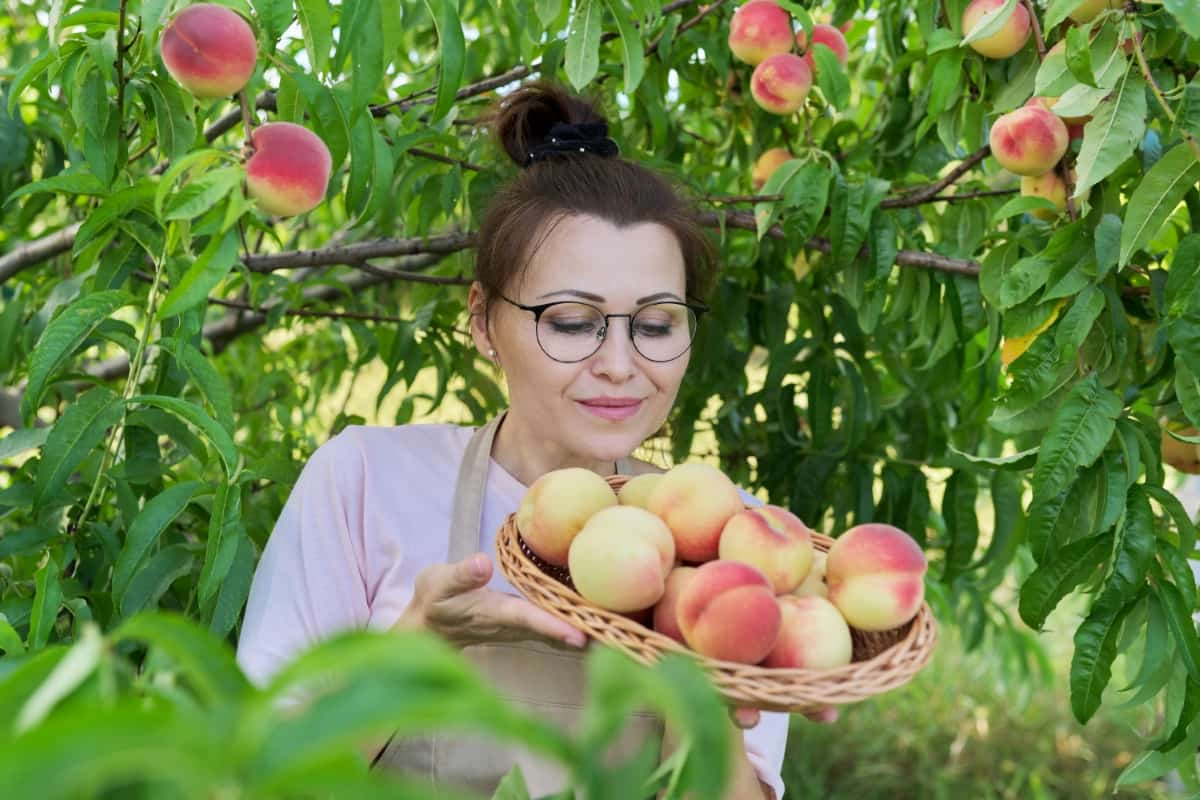Michigan is renowned for its diverse topography, with various regions offering unique climates suitable for cultivating various fruits. From the Upper Peninsula to the rolling hills of Northern Michigan and the fertile lands of the southern state, home fruit production in Michigan is flourishing.
The state boasts a list of the best fruit trees to plant in Michigan suited to the various microclimates and soil types. Whether you’re a hobby gardener or an agricultural enthusiast, Michigan offers a broad palette of fruit trees that grow in the region, including apples, blueberries, and peaches, among Michigan’s most popular fruits.
So, what fruits are in season in Michigan right now? Let’s embark on a journey to explore the best berries to grow in Michigan and discover whether you can grow kiwi in Michigan. Along the way, we’ll touch on the easiest fruit trees to grow in the region, focus on the best fruit trees for northern Michigan, and learn about the best peach and blueberries suited for Michigan soils.
11 Best Fruits to Grow in Michigan Region
Apples: The Iconic Fruit of Michigan
Perhaps the most iconic among the fruit trees that grow in Michigan, the apple tree stands tall. Home fruit production in Michigan sees a significant portion dedicated to apples, making it arguably the most popular fruit in Michigan. The state’s climate is perfect for apple cultivation, especially in regions like Grand Rapids and Traverse City. Care involves proper pruning, ensuring well-draining soil, and using organic pest control methods to maintain the health of these trees. With the right care, Michigan’s apple orchards yield succulent, crisp, and aromatic fruits.

Blueberries: A Superfood that Thrives in Michigan
The lush landscapes of Michigan, especially in the western regions like Van Buren and Berrien Counties, are home to vast blueberry farms. As the best blueberries in Michigan, varieties like the ‘Jersey’ and ‘Elliott’ thrive in the region. Adequate drainage and a slightly acidic pH are essential for the best possible growth of blueberries. Regular mulching and watering, combined with proper spacing between plants, ensure that these superfoods produce bumper harvests year after year.
In case you missed it: Best Tasting Tomatoes to Grow in Michigan: Time to Plant, Types, and Varieties

Cherries: Tart and Sweet Delights from Michigan
Northern Michigan, particularly areas around Traverse City, is a haven for cherry growers. Both tart and sweet cherry varieties flourish here. To ensure bountiful harvests, choosing a sunny location is essential, as maintaining a well-draining soil and monitoring for pests like the cherry fruit fly. With regular care and pruning, Michigan’s cherry orchards dazzle with ruby-red and luscious fruits.
Strawberries: Juicy and Fragrant Berries for Michigan Gardens
From early June to July, Michigan gardens are adorned with the vibrant red of ripening strawberries. Regions like Allegan and Van Buren are famous for their strawberry patches. These juicy delights need sun, rich, loamy soil, and regular watering. Keeping the beds weed-free and using straw mulches can help maintain moisture and keep the fruits clean.
Raspberries: Versatile Berries for Michigan Gardens
Red and black raspberries are some of the best berries to grow in Michigan. With regions like the Upper Peninsula offering ideal growing conditions, these berries require well-draining soils rich in organic matter. Regular pruning helps in maintaining plant vigor and fruit production. Vigilantly monitoring prevalent pests and diseases helps to maintain the status of these berries as a consistent element in Michigan gardens.
In case you missed it: 11 Best Salad Tomato Varieties You Should Grow in Your Garden

Grapes: Michigan’s Vineyard Treasures
Michigan’s wine country, especially regions like the Leelanau Peninsula and the Old Mission Peninsula, owe their reputation to the bountiful grapevines. To get the best out of grape cultivation, one must ensure proper trellising, pruning, and monitoring for pests. The sandy loam soils in these regions, combined with the moderating effects of the Great Lakes, create the perfect terroir for grape cultivation.
Peaches: Fragrant and Juicy Delights from Michigan Orchards
Regarding the best peach tree for Michigan, regions like Berrien and Van Buren Counties stand out. The state’s temperate climate and well-draining sandy soils provide the ideal conditions for peach cultivation. Regular watering during dry periods, proper pruning, and monitoring for pests like the peach tree borer ensure the production of juicy and fragrant peaches.
In case you missed it: Peach Yields Per Hectare, Harvesting, and Storing of Peaches

Plums: Sweet and Tangy Stone Fruits for Michigan Gardens
Plums are another stone fruit found in the list of fruit trees that grow in Michigan. The state’s varied regions offer suitable climates for different plum varieties. With the right care, which includes ensuring well-draining soils, adequate sun, and proper pruning, Michigan gardens can enjoy the sweet and tangy delights of plums.
Currants: Lesser-Known Berries with Great Potential in Michigan
While not as mainstream as some other fruits, currants hold great potential in Michigan gardens. These lesser-known berries thrive in regions with cooler summers, like Northern Michigan. Proper spacing, sunlight, and moist soil are key to successful cultivation.
Melons: Refreshing Summer Fruits for Michigan Gardens
Now, we touch upon the summer delights – melons. While it might be surprising for some, you can cultivate melons, even in regions like Southern Michigan. These sun-loving fruits require a long growing season, warm temperatures, and well-draining soils. Michigan gardens can enjoy refreshing melons during the warm summer months by ensuring these conditions and monitoring for common pests.
Blackberries: The Thorny Treasures of Michigan’s Landscape
Michigan’s diverse topography, which has already proven itself as a fruitful ground for numerous berries, doesn’t disappoint when it comes to blackberries. Thriving especially in the southern and central parts of the state, blackberries are gradually making a name for themselves. These thorny treasures are relatively low maintenance, and once established, they can provide a generous yield.
For the best fruit production, blackberries prefer full sunlight, although they can tolerate partial shade. However, their soil preference makes them suitable for many parts of Michigan; they flourish in well-draining loam, enriched with organic matter. It’s vital to offer support for growing canes through trellises or staking, which not only aids the growth but also makes the harvesting process less prickly.
Regular pruning is also a key aspect. Pruning away deceased canes and strategically reducing plant density promotes sufficient air circulation, thus diminishing the vulnerability to fungal infections. As summer progresses, clusters of white blossoms give way to green berries, which gradually darken to the rich, deep hue that indicates ripeness. These berries are delicious when eaten fresh and perfect for jams, jellies, and baked desserts.
Conclusion
Michigan offers many fruit cultivation options, including iconic apples, succulent blueberries, or fragrant peaches. Each region, with its unique climate and soil, contributes to the state’s rich tapestry of fruit production. With the right knowledge and care, gardens and orchards in Michigan can indeed thrive and produce bountiful harvests year after year.
- Feed Your Flock for Less: Top 10 Tips to Save on Chicken Feed
- Ultimate Guide to Ossabaw Island Hog: Breeding, Raising, Diet, and Care
- Hatching Answers: The Top 10 Reasons Your Chickens Aren’t Laying Eggs
- Eggs and Economics: Breaking Down the Cost of Raising Backyard Chickens
- Defend Your Greens: Proven Methods to Keep Iguanas Out of Your Garden
- Ultimate Guide to Cinnamon Queen Chicken: A Comprehensive Guide for Beginners
- Ultimate Guide to California Tan Chicken: Breeding, Raising, Diet, Egg-Production and Care
- Ultimate Guide to Marsh Daisy Chicken: Breeding, Raising, Diet, and Care
- 10 Types of Chicken Farming Businesses You Can Start for Profits